Hey there, fellow parents! As we navigate the exciting world of baby nutrition, we often find ourselves pondering the best timing for introducing wholesome foods like ragi into our little one's diet. Ragi, also known as finger millet, is a superfood packed with nutrients, making it a fantastic choice for our growing bundles of joy. But when is the ideal time to serve ragi to maximize its benefits for our babies? Join us on this friendly exploration as we unveil the mystery of morning versus night and discover the perfect time to give ragi for your baby's optimal health and happiness.
Unlocking the Nutritional Magic of Ragi:

Before we dive into the timing dilemma, let's take a moment to appreciate the incredible nutritional treasure trove that is ragi. This ancient grain has been cherished for centuries for its abundant health benefits, making it a beloved staple in many cultures.
Ragi is loaded with essential nutrients like calcium, iron, fiber, protein, and vitamins, all of which are crucial for supporting your baby's growth and development. Its gentle nature and gluten-free properties make it easy on sensitive tummies, while its slow-digesting carbohydrates provide long-lasting energy and satiety.
So, now that we've established just how fantastic ragi is for our little ones, let's delve into the timing dilemma: morning or night?
Morning Marvels:
Picture this: the sun peeks through the curtains, birds chirp cheerfully outside, and your baby is ready to tackle the day. What better time to introduce the nutritional powerhouse that is ragi than the bright and early hours of the morning?
Here's why morning ragi may be the perfect pick-me-up for your little one:
- Energizing Start: Kickstarting the day with a nourishing bowl of ragi porridge can provide your baby with a wholesome and energizing boost. Its complex carbohydrates offer a steady release of energy, keeping your little one fueled and focused for their morning adventures.
- Breakfast Bliss: They say breakfast is the most important meal of the day, and we couldn't agree more! Serving ragi in the morning sets a positive tone for your baby's nutritional intake, ensuring they start the day on the right foot. Plus, it's a fantastic opportunity to establish healthy eating habits from an early age.
- Gentle on the Tummy: Ragi's gentle and easily digestible nature makes it an excellent choice for the morning, especially if your baby has a sensitive stomach. Starting the day with a light and nourishing meal can promote smooth digestion and prevent any discomfort or bloating throughout the day.
Nighttime Nourishment:
As the day winds down and bedtime approaches, the cozy comfort of nighttime rituals beckons. Could this be the perfect time to introduce ragi into your baby's evening routine?
Here's why serving ragi at night might just be the bedtime treat your baby needs:
- Soothing Routine: Incorporating ragi into your baby's nighttime routine can transform mealtime into a soothing and comforting ritual. Its warm and nourishing qualities create a sense of relaxation, helping your little one wind down and prepare for a restful night's sleep.
- Satiety for Sleep: Ragi's slow-digesting properties ensure a feeling of fullness and satiety, which can be beneficial before bedtime. A satisfied tummy can lead to more restful sleep for your baby, allowing them to recharge and grow during the night.
- Nutrient Absorption: Some studies suggest that consuming certain nutrients before bedtime may enhance their absorption and utilization by the body. By offering ragi at night, you may optimize your baby's intake of essential nutrients and support their overall growth and development as they sleep peacefully.
The Verdict: Morning or Night?
So, after exploring the benefits of morning and nighttime ragi, which time reigns supreme? The truth is, there's no one-size-fits-all answer. The best time to introduce ragi to your baby ultimately depends on their individual preferences, schedule, and nutritional needs.
As loving parents, it's essential to listen to your baby's cues and create a mealtime routine that works for your family. Whether you choose to start the day with a hearty bowl of morning ragi or wind down with a comforting serving at night, the most important thing is to provide your little one with nutritious meals made with love and care.
Conclusion:
In the delightful dance of parenting, timing plays a significant role in nurturing our babies' health and happiness. When it comes to introducing ragi into your baby's diet, both morning and night offer unique opportunities to reap its nutritional benefits and create lasting memories with your little one.
So, whether you're sharing a sunny morning breakfast or a cozy nighttime snack, let ragi be a source of nourishment, comfort, and joy for your baby as they continue to grow, thrive, and explore the world around them. Here's to happy tummies, peaceful nights, and endless moments of love shared over delicious bowls of ragi goodness!
FAQ’s
Q1: Can I introduce Happa's cereal to my baby if they have just started solids?
A: Yes, Happa's cereal is a great choice for babies who have just started solids. It offers a smooth texture for easy swallowing.
Q2: Does Happa cereal contain any sugar in it? I see sugar in the nutritional information panel?
A.: We do not use white/processed sugar in our cereals. We use fruit powders/dates powder as a sweetener in our cereals to bring in the requisite level of sweetness.
Q3: How do I prepare Happa's ready-to-cook cereal for my baby?
A: Preparing Happa's cereal is simple. Just mix the 2-3 spoons of cereal powder in 100 ml of water or milk, break the lumps that get formed, and cook it for 3-4 minutes till it reaches the desired consistency. Cool it and serve
Q4: Is Happa's cereal organic?
A: Yes, Happa's cereal is made from certified organic ingredients, ensuring the highest quality for your baby.
Q5: Can I mix Happa's cereal with formula or breast milk for added nutrition?
A: Yes, Happa's cereal is designed to be mixed with water, formula, or breast milk for added nutrition and taste.


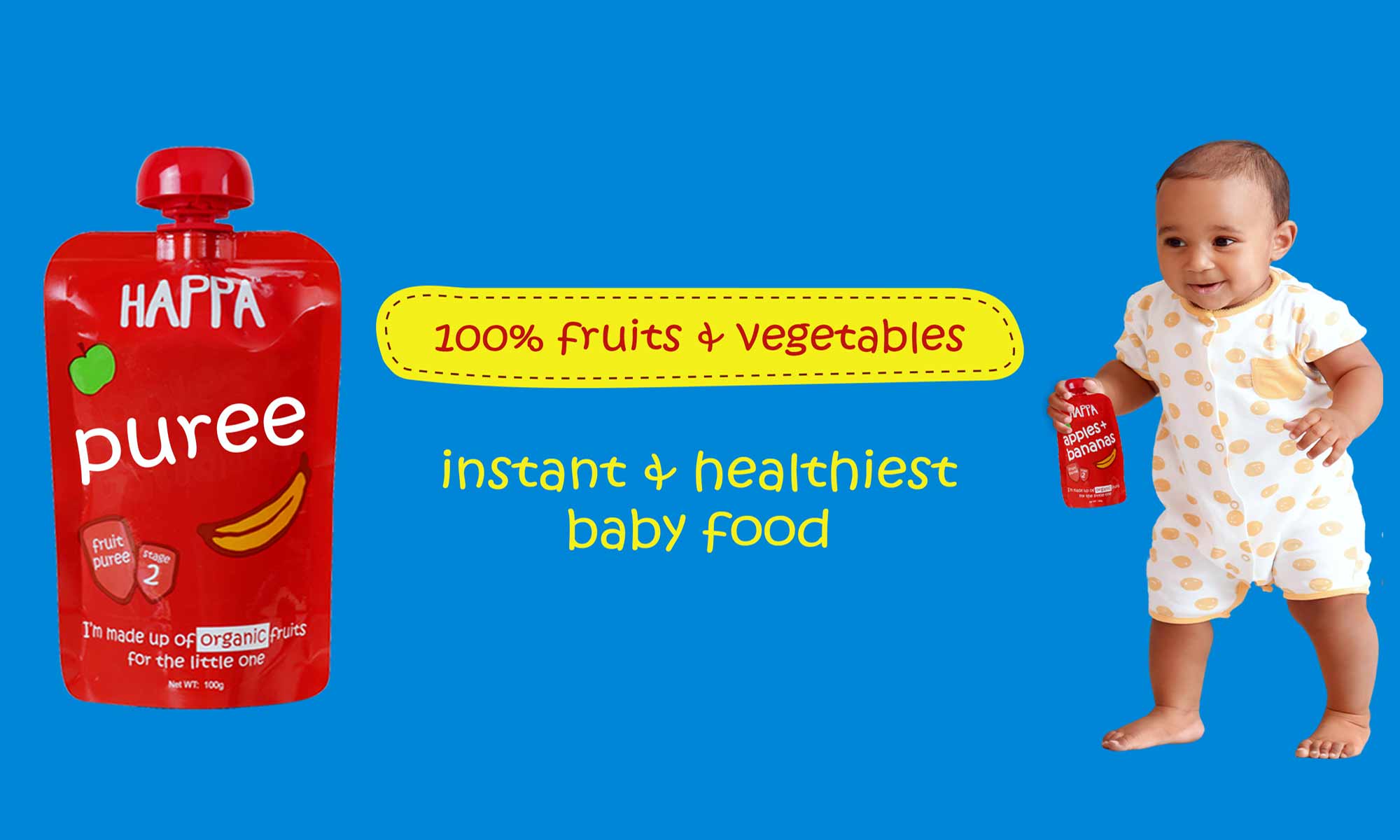




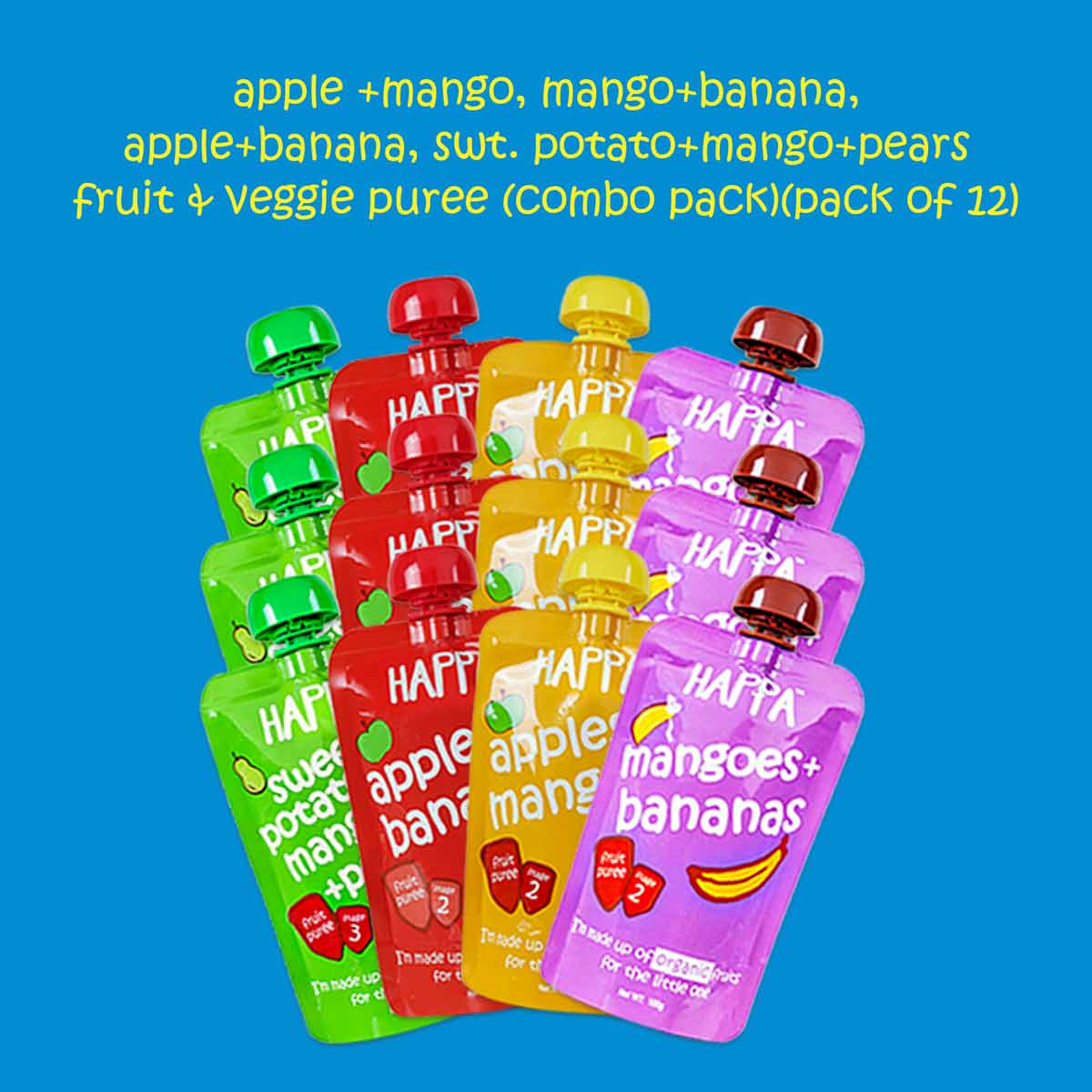

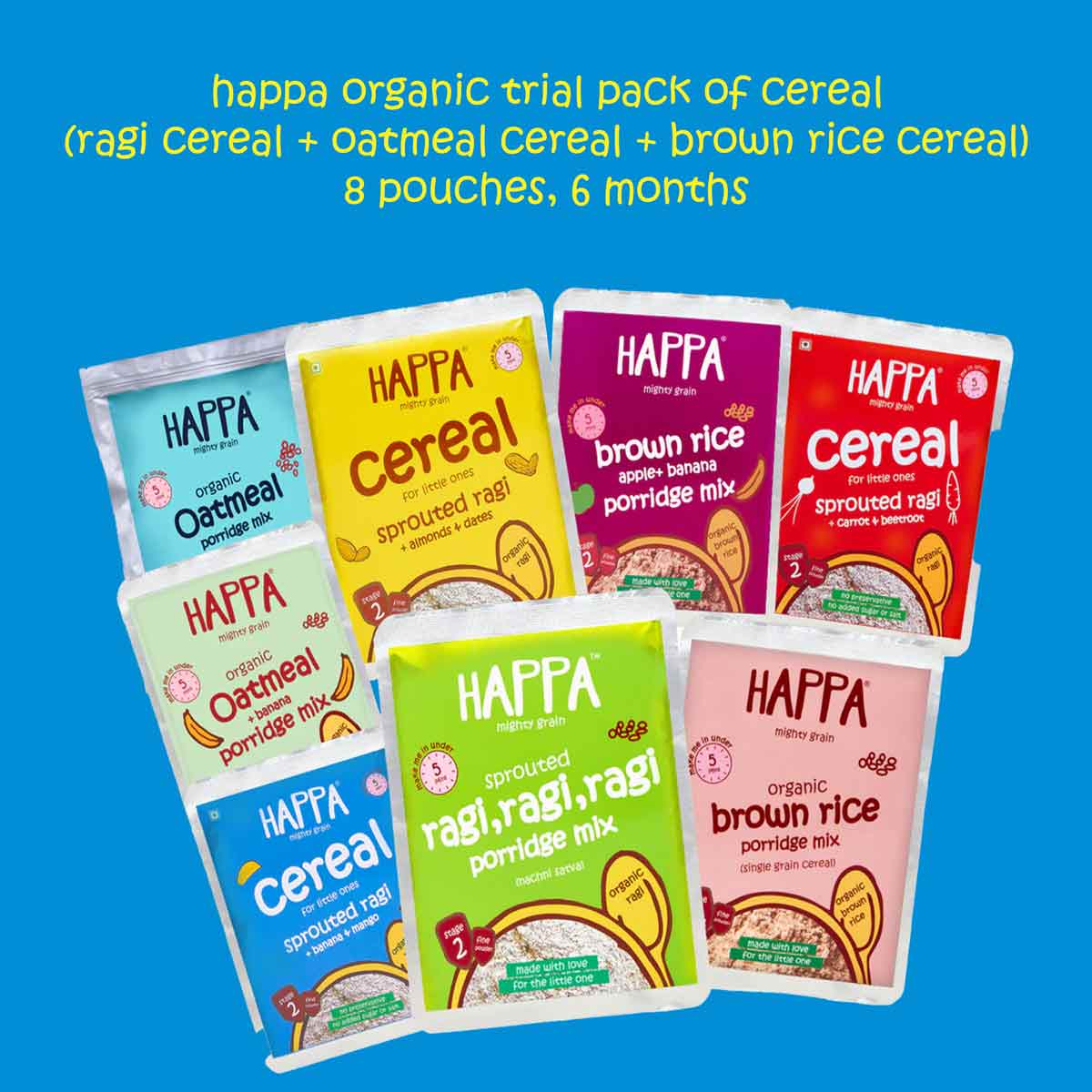

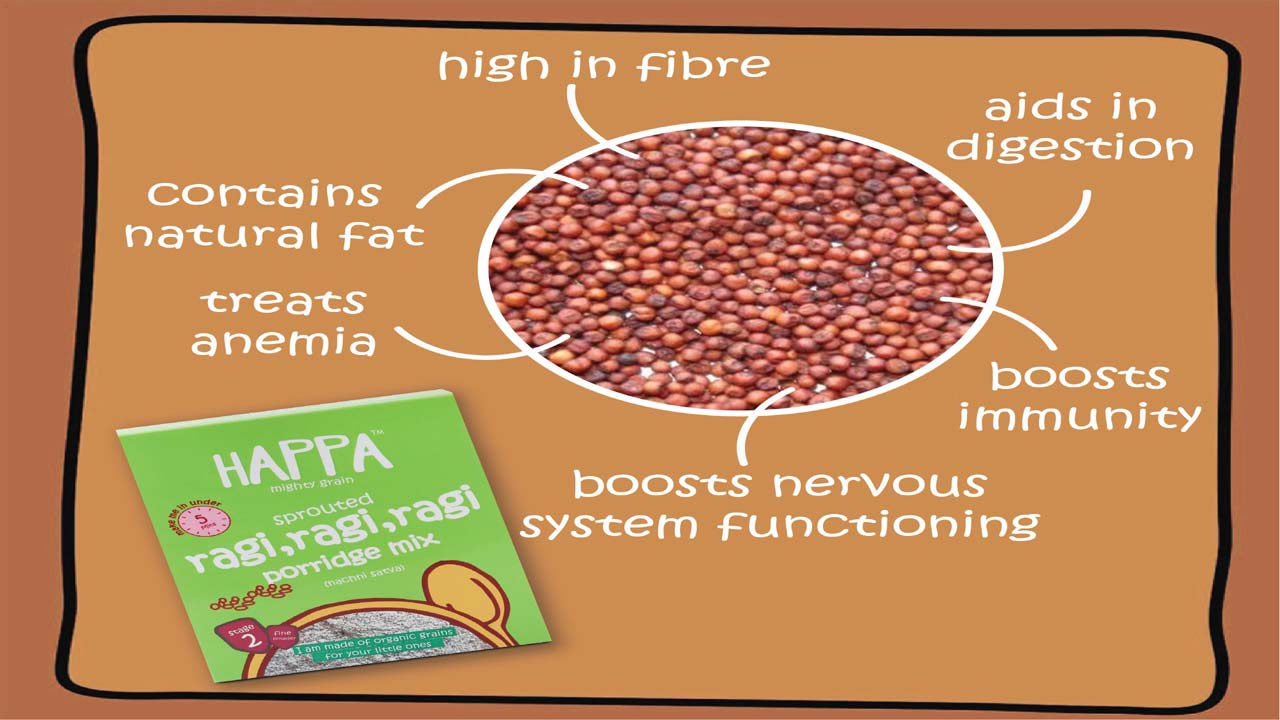
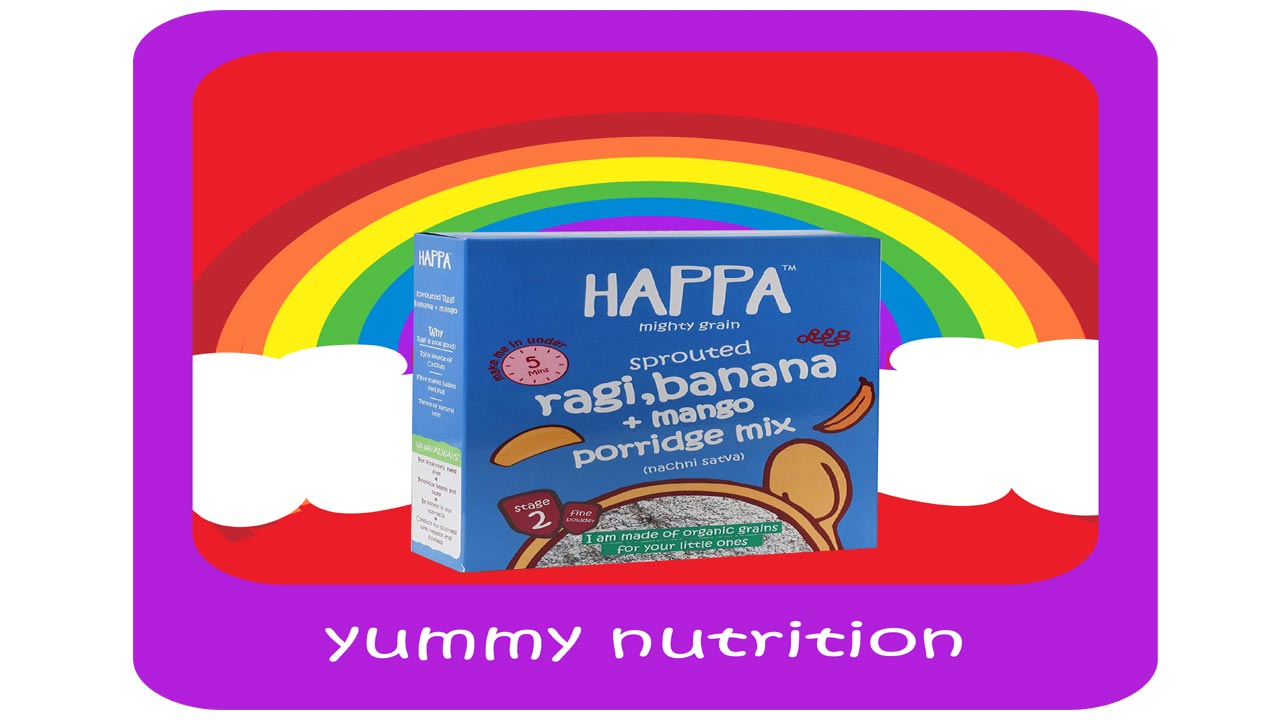
Leave a comment
This site is protected by hCaptcha and the hCaptcha Privacy Policy and Terms of Service apply.